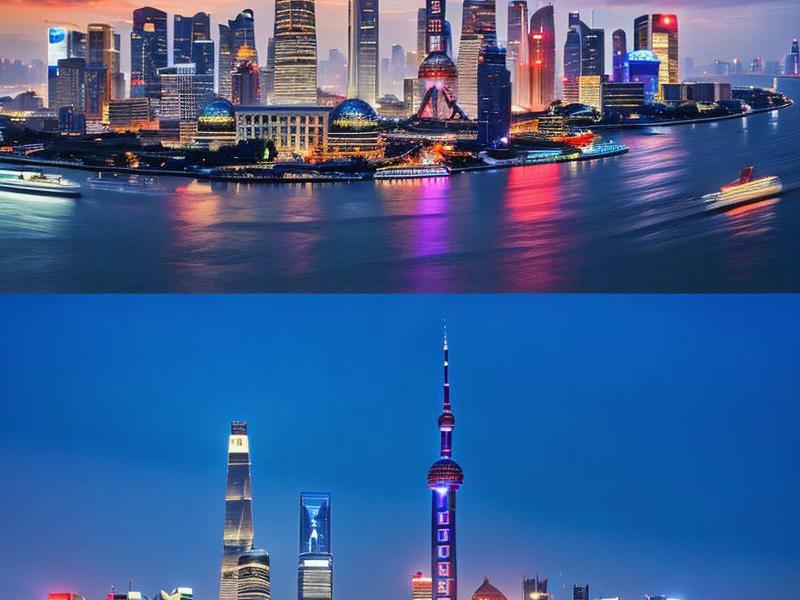Shanghai: A Dynamic Metropolis Shaping the Future of China and the World
⏱ 2025-05-01 20:31 🔖 上海龙凤419
📢0℃

Shanghai, often referred to as the "Pearl of the Orient," has a rich history that dates back to the Tang Dynasty. However, it was during the late 19th and early 20th centuries that the city began to emerge as a major international port and commercial center. The opening of the Treaty Ports in 1842 following the First Opium War marked the beginning of Shanghai's transformation into a global city.
In the early 20th century, Shanghai was known as the "Paris of the East," a cosmopolitan hub where Chinese and foreign cultures intertwined. The city's iconic Bund, with its juxtaposition of colonial-era buildings and the futuristic skyline of Pudong, serves as a visual testament to this historical blend.
The economic rise of Shanghai began in earnest after the establishment of the People's Republic of China in 1949. However, it was the economic reforms initiated in 1978 under Deng Xiaoping that truly propelled Shanghai into the global spotlight. The development of Pudong, once a rural area on the eastern bank of the Huangpu River, into a modern financial district symbolizes the city's rapid transformation.
Today, Shanghai is the largest city in China and one of the world's most populous urban centers. It is a major financial hub, housing the Shanghai Stock Exchange, one of the largest stock exchanges in the world. The city's GDP ranks among the highest globally, driven by a diverse economy that includes finance, trade, manufacturing, technology, and services.
上海喝茶服务vx One of the most striking features of Shanghai is its urban landscape. The city is known for its towering skyscrapers, such as the iconic Oriental Pearl Tower and the Shanghai Tower, which is the tallest building in China and the second-tallest in the world. These modern structures stand alongside historic landmarks like the Yu Garden, a classical Chinese garden built in the Ming Dynasty, and the Nanjing Road, one of the world's busiest shopping streets.
Shanghai's urban planning is a model of innovation and sustainability. The city has implemented various initiatives to reduce congestion, improve air quality, and promote green spaces. The Maglev train, which connects Pudong International Airport to the city center in just seven minutes, is a testament to Shanghai's commitment to advanced transportation technologies.
Culturally, Shanghai is a melting pot of traditions and modernity. The city is home to a vibrant arts scene, with numerous museums, galleries, theaters, and music venues. The Shanghai Museum, renowned for its extensive collection of Chinese art, attracts millions of visitors annually. The city also hosts international cultural events, such as the Shanghai International Film Festival and the Shanghai Fashion Week, which showcase its role as a global cultural capital.
Shanghai's culinary scene is another aspect that reflects its unique blend of cultures. The city offers a wide range of dining options, from traditional Shanghainese cuisine, known for its sweet and savory flavors, to international dishes that cater to its diverse population. Street food vendors in areas like Nanjing Road and the Old Town provide an authentic taste of the city's culinary heritage.
上海龙凤阿拉后花园
Education is a key pillar of Shanghai's development. The city is home to some of China's top universities, including Fudan University and Tongji University, which are renowned for their academic excellence and research contributions. Shanghai's education system is highly regarded, attracting students and scholars from around the world.
In recent years, Shanghai has taken significant steps to enhance its position on the global stage. The establishment of the China (Shanghai) Pilot Free Trade Zone in 2013 marked a major step in the city's efforts to promote free trade and economic reform. The zone serves as a testing ground for new policies and initiatives that aim to further integrate China into the global economy.
Shanghai's role in international diplomacy is also noteworthy. The city has hosted numerous high-profile international summits and events, including the G20 Summit in 2016 and the Belt and Road Forum for International Cooperation in 2017. These events underscore Shanghai's importance as a hub for global governance and cooperation.
上海品茶工作室 Despite its rapid development, Shanghai remains committed to preserving its cultural heritage and addressing environmental challenges. The city has implemented various measures to protect its historical sites and promote sustainable urban development. Initiatives such as the construction of green buildings, the expansion of public transportation networks, and the promotion of renewable energy sources reflect Shanghai's dedication to creating a livable and sustainable city.
Shanghai's future looks promising as it continues to evolve into a global leader in innovation, culture, and sustainability. The city's strategic location, robust economy, and dynamic population make it a key player in China's development and a significant force in the global arena.
In conclusion, Shanghai is a city that embodies the spirit of modernity and tradition, innovation and sustainability, and local identity and global influence. Its journey from a small fishing village to a global metropolis is a testament to the resilience and ambition of its people. As Shanghai continues to shape the future of China and the world, it remains a source of inspiration and a symbol of what is possible in the 21st century.
【潮涌长三角:上海的半径与圆周】从外滩灯光到江南水乡的共生密码Shanghai's Vibrant Cultural Scene: A Blend of Tradition and Modernity【霓虹与素笺】上海女性的百年气质图谱Shanghai 5250: Quantum Leisure Singularity and the Galactic Nightlife Matrix【城市观察】文化魔方的三原色:上海剧场、书店与美术馆的共生实验Shanghai's Nightlife Renaissance: Where Imperial Heritage Meets Quantum Innovation【霓虹密码】上海娱乐会所的时空折叠术Shanghai's Smart Nightlife Ecosystems: Blending Imperial Heritage with AI-Driven Innovation【量子上海】在11个维度中同时绽放的魔都镜像(1850-2025)Shanghai's Finest Women: A Story of Resilience and Excellence

